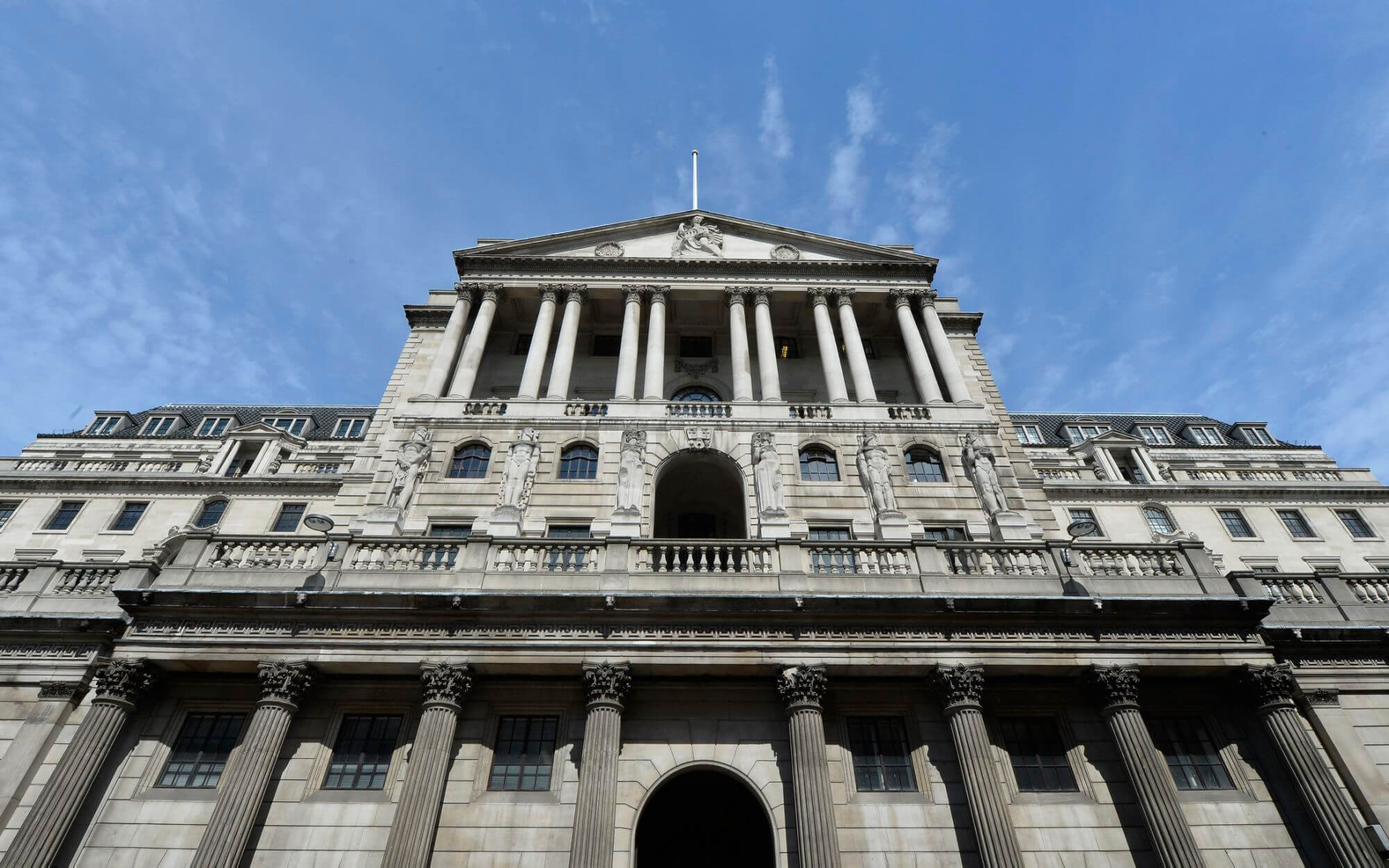
Bank of England Delivers Latest Policy Verdict, Predicts Inflation
The Bank of England is not expected to deliver any surprises when it publishes its latest monetary policy decisions on Thursday but the tone of comments made around the announcement will be watched closely.
Economists predict the central bank will leave the UK’s interest rate at 0.1% and its programme of unconventional monetary policy tools unchanged.
But investors will be pouring over the minutes from the Bank’s monetary policy meeting to try and glean when exactly things might change.
“We think the tone of the meeting minutes will be worth paying attention to,” RBC Capital Markets said in a preview note. “There was a notable shift between the minutes of the December meeting and those of the February meeting, the latter having jettisoned much of the caution in the former.”
Recent data has been better-than-expected and Bank of England governor Andrew Bailey said this week he now expects the UK to reach pre-pandemic levels by the end of this year. That could push the bank to increase interest rates to rise faster than previously assumed.
Bond market investors certainly believe rates will be on the rise soon enough. Government debt has sold off around the world in recent weeks as investors have bet that rising inflation will force central banks to hike rates. The spur has been US president Joe Biden’s $1.9tn (£1.4bn) stimulus package, which economists think will provide a global economic boost.
“While some observers were speculating about the potential for negative interest rates in the UK at the start of the year, the BOE’s bigger concern lately has been rising interest rates and fears of accelerating inflation as the economy gradually opens up in the coming months,” said Matthew Weller, global head of research at GAIN Capital.
The Monetary Policy Committee (MPC) is likely to comment on the recent bond sell off but, unlike counterparts at the ECB, analysts don’t think the bank will take action to keep yields down. Rising inflation is expected to accompany strong growth in the UK, which makes the threat of increasing market rates less pressing.
While Bailey and colleague Andy Haldane, the Bank of England’s chief economist, seem convinced that the UK is now on the right track, not everyone on the nine-person MPC is convinced.
“Since February, what we have heard from MPC speakers suggests that there is a greater degree of divergence of opinion within the MPC on the outlook for the economy than was evident at the time,” RBC Capital said.
“Having ‘talked up the recovery’ since the turn of the year, it will be difficult for the MPC to row that back now, so we aren’t looking for a major step back from the more hawkish undertone that we noted in the last minutes.”
Fabrice Montagné and Abbas Khan, economists at Barclays, said recent data had “not been very informative on the future path of the economy.”
“It remains difficult to read much into the labour market and inflation data given measurement issues,” the pair wrote.
“Given the remaining uncertainties in the economic outlook, we expect the Bank to not rule out negative rates, but to likely remind the market of preparations underway to make it a feasible tool from August.”
The Bank of England will publish its latest monetary policy decisions at 12pm on Thursday.

